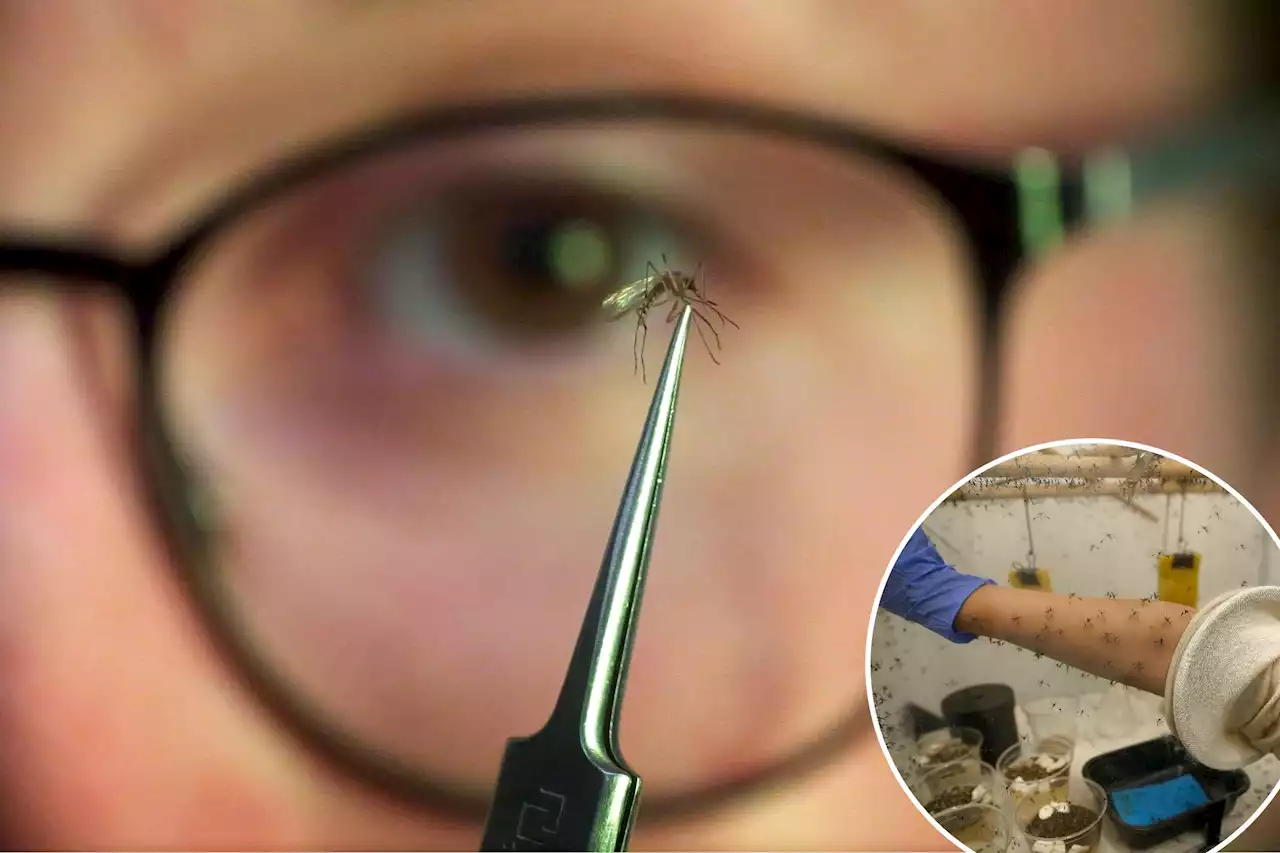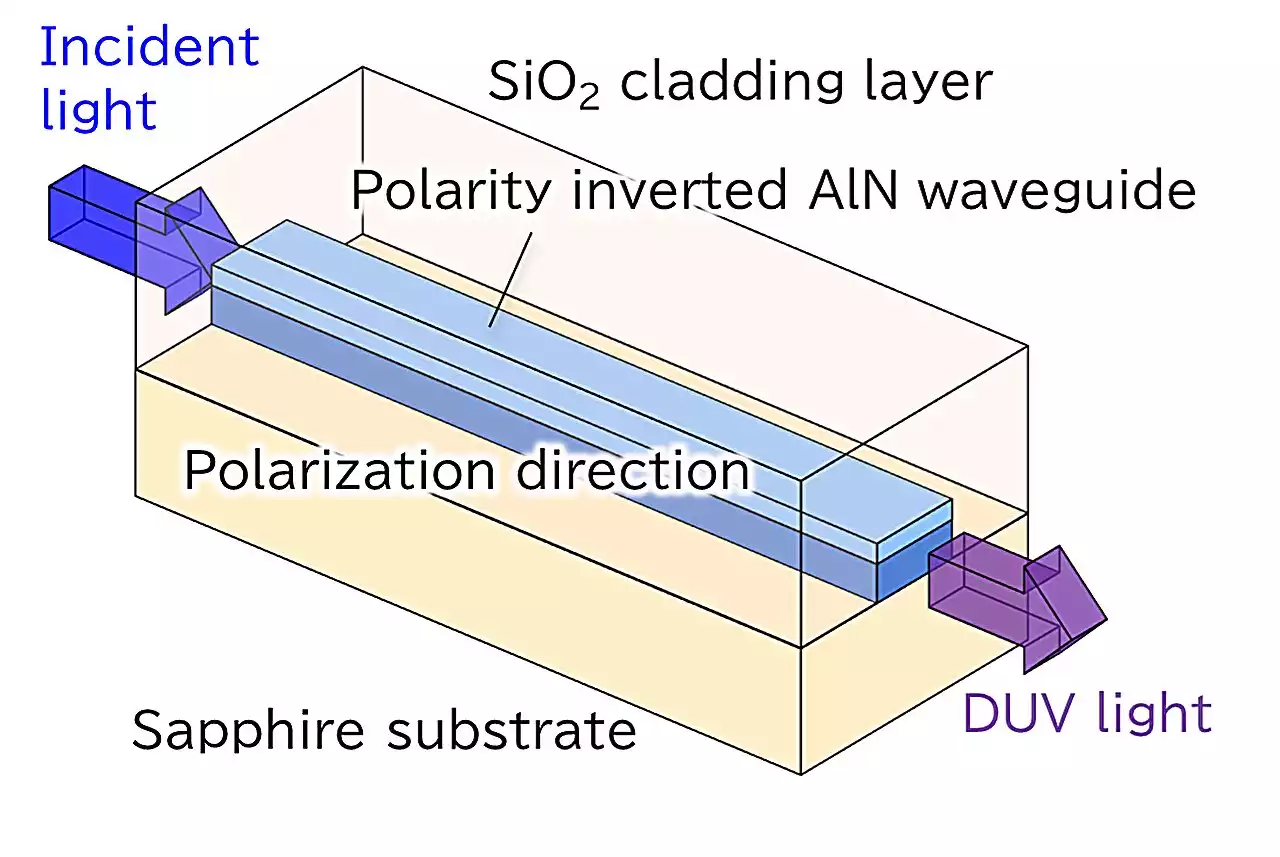While it has long been known that ultraviolet (UV) light can help kill disease-causing pathogens, the COVID-19 pandemic has put a spotlight on how these technologies can rid environments of germs. However, the excimer lamps and LEDs that can directly emit light in the required deep-UV wavelengths generally have low efficiency or suffer from short lifetimes. Moreover, UV light of the wrong wavelength can actually be harmful to human cells.
SEM image of fabricated polarity inverted AlN waveguide. Credit: Hiroto Honda"Our new fabrication method for deep-UV light generation borrows techniques from semiconductor processing, which allows for precise control of the orientation of the aluminum-nitride crystal. This was difficult to achieve in the past," explains lead author Hiroto Honda.
The wavelength of UV light created by the prototype device is within a very narrow range that has enough energy to kill germs but remains mostly harmless to humans. "The results of our project help show that compactness and efficiency is possible for deep-UV disinfection tools, without sacrificing human safety," says senior author Ryuji Katayama. The researchers hope to refine this method to produce commercial devices that consume less energy than previous options.
日本 最新ニュース, 日本 見出し
Similar News:他のニュース ソースから収集した、これに似たニュース記事を読むこともできます。
 Researchers unlock Sweet Annie's cancer-fighting potentialArtemisia annua has been revered in traditional Chinese medicine for over 2,000 years, particularly for producing artemisinin.
Researchers unlock Sweet Annie's cancer-fighting potentialArtemisia annua has been revered in traditional Chinese medicine for over 2,000 years, particularly for producing artemisinin.
続きを読む »
 Mosquitoes feed on researchers’ blood as scientists research methods of controlAt the Salt Lake City Mosquito Abatement District, a colony of sabethes cyaneus get their nutrients from a vector technician’s arm.
Mosquitoes feed on researchers’ blood as scientists research methods of controlAt the Salt Lake City Mosquito Abatement District, a colony of sabethes cyaneus get their nutrients from a vector technician’s arm.
続きを読む »
 Utah data helps researchers highlight how urbanization impacts wildlifeNorth American cities, including the Salt Lake City area, are getting warmer, and researchers warn the heat is making it more difficult for native wildlife to adjust to the growing urbanization near their homes.
Utah data helps researchers highlight how urbanization impacts wildlifeNorth American cities, including the Salt Lake City area, are getting warmer, and researchers warn the heat is making it more difficult for native wildlife to adjust to the growing urbanization near their homes.
続きを読む »
 UNF researcher awarded grant to help save our coral reefsA team of researchers were recently awarded a National Science Foundation Integrative Biology program grant.
UNF researcher awarded grant to help save our coral reefsA team of researchers were recently awarded a National Science Foundation Integrative Biology program grant.
続きを読む »
 ESSEC Business SchoolResearchers from ESSEC Business School in Cergy, France.
ESSEC Business SchoolResearchers from ESSEC Business School in Cergy, France.
続きを読む »
 Can We Talk to Whales?Researchers believe that artificial intelligence may allow us to speak to other species.
Can We Talk to Whales?Researchers believe that artificial intelligence may allow us to speak to other species.
続きを読む »
